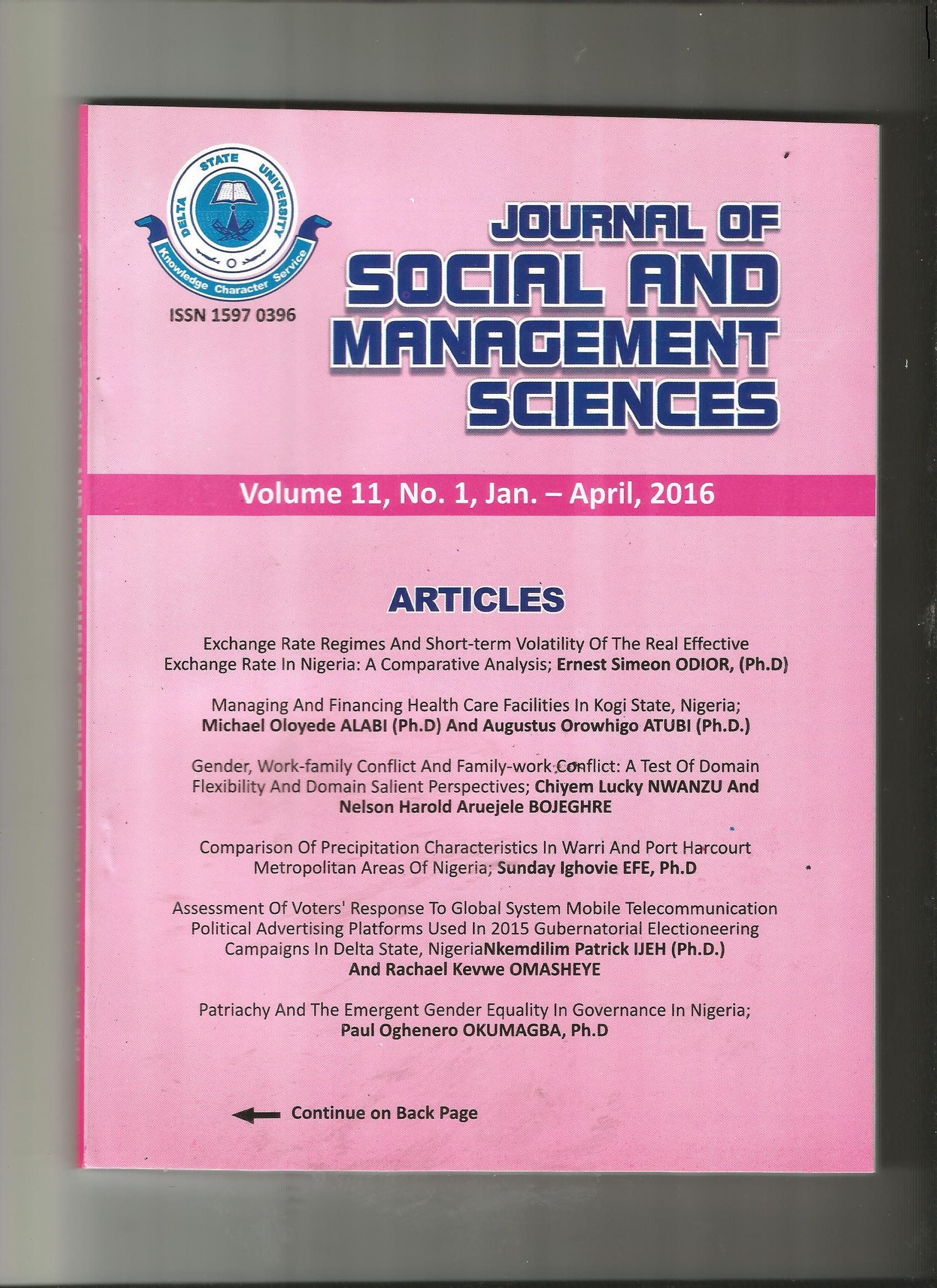
JOURNAL OF SOCIAL AND MANAGEMENT SCIENCES
Journal of the Faculty of Social Sciences, Delta State University, Abraka, Nigeria
ISSN: 1597-0396
DOI: 10.5987/UJ-JSMS
Email: jsms@universityjournals.org
THE DEBATE AROUND THE INTERNATIONAL FINANCIAL REPORTING STANDARD (IFRS) FAIR VALUE ACCOUNTING CONCEPT
DOI: 10.5987/UJ-JSMS.16.027.1 | Article Number: 2B59968 | Vol.11 (1) - April 2016
Author: EFERAKEYA Idowu
Keywords: International Financial Reporting, Fair value accounting, Historical cost accounting
This paper examined the debate around the International Financial Reporting Standard (IFRS) fair value accounting concept. In doing so, it reviewed existing literature and articulated several arguments for and against the concept which is the core objective of the paper. Meta analysis was adopted which aided the discussions of the arguments. The discussions centred on the intelligible points which favoured adoption of IFRS (i.e establishment of market values, enhanced accounting information disclosure, promotion of capital and investment movement within and across national boundary, elimination of national accounting differences ,transparency etc which enhances comparability, reliability, relevance and understand ability) and those that are against it favouring Historical cost accounting (i.e linkage with the 2007 financial crisis, over valuation of assets and liabilities in periods of crisis, the presence of imperfect and illiquid markets, prudence among others). On the basis of the review the paper seeks support for the adoption of IFRS considering the many advantages it offers though with a caution that appropriate regulations and framework be put in place to eliminate its flaws. Finally, it noted that these two arguments certainly provide interesting as well as challenging observations on contemporary accounting practice and research which deserve investigation .It recommended that the arguments for and against the IFRS fair value concept are germane and should be tactfully noted, compiled, analysed, discussed and harmonised by the relevant national and international accounting standard setters with a view to ensuring standardization. This will bring about significant improvements to IFRS. Thus it will accelerate universal adoption of IFRS and finally make accounting language and reporting to be uniform as the world gravitates towards becoming a global village.
